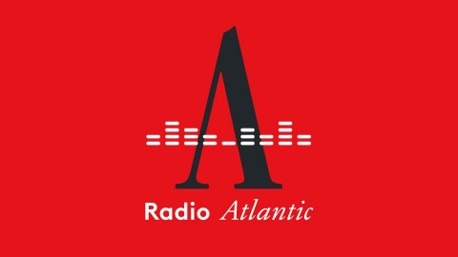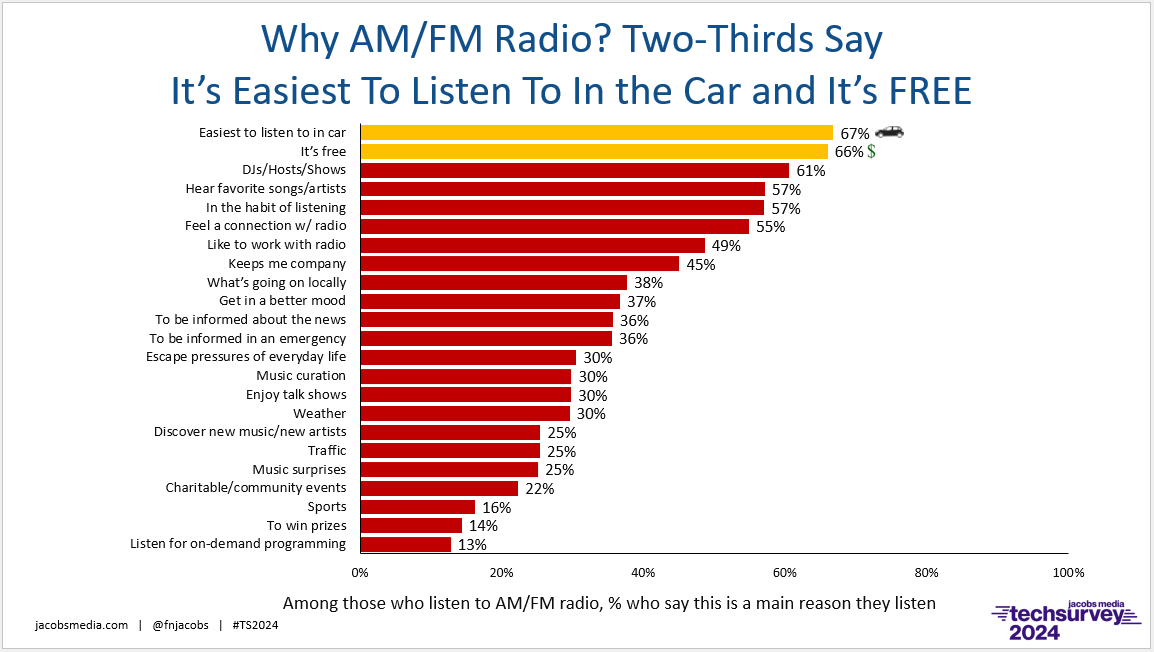
Print is dead, right? And so are audio cassettes, flip-phones, and brick-and-mortar stores.
Except they’re not.
You have no doubt read about the resurrection of vinyl records and audio cassettes. A recent New York Times story catalogued the “cassette comeback.” As the folks at Third Man Records will tell you, it’s a lot cheaper to buy the new Taylor Swift album in the lowly cassette format than it is to buy its vinyl counterpart. The Times story reminds us the tough part is finding a cassette deck that plays the damn things. (Pro tip: Find a pre-2002 car or truck and it’s likely to have one, hopefully in working order.)
 Flip-phones aren’t just back – they’re cool. The problem with Samsung’s Galaxy Z Flip 6 phone (pictured) is its not-so-retro price tag of $900 or more, depending on the deal you can score. There are rumors Apple is working on a flip-phone of its own. What’s old is new – and expensive – again.
Flip-phones aren’t just back – they’re cool. The problem with Samsung’s Galaxy Z Flip 6 phone (pictured) is its not-so-retro price tag of $900 or more, depending on the deal you can score. There are rumors Apple is working on a flip-phone of its own. What’s old is new – and expensive – again.
And finally, actual physical stores in the age of Amazon Prime? They are happening, too. This new trend-in-the-making is being spearheaded by Netflix, a story you may remember reading right here. Netflix is vying to create exciting experiences based on some of its most popular movies, shows, and streaming content.
But an actual magazine – one you print and bind and hold in your hand? They may be making a comeback, too, led by one of the industry’s stalwarts – The Atlantic – first published way, way back in 1857. That’s seventeen years before Marconi was even born.
Originally known as The Atlantic Monthly, the publication hit the skids back in 2002 when financial pressure caused a reduction of print operations. That was when the magazine went from 12 issues a year down to 10. And so, the news that The Atlantic will, in fact, be monthly again was greeted with exuberance and pride.

CNN’s Brian Stelter spoke with the editor-in-chief Jeffrey Goldberg (pictured) who attributed the magazine’s comeback to “excellent journalism” and the “enduring power of a beautifully and well produced magazine.”
It also didn’t hurt that despite the death of so many magazines since the turn of this century, The Atlantic is once again popular having just reached the one million subscriber milestone.
In other words, great content and a stellar distribution/marketing model – the simple but elusive formula for magazines that so many others simply aspire to but cannot attain.
 Along the way, The Atlantic started a podcast, Radio Atlantic, another pathway to grow their audience and their subscribership. Their host, Hanna Rosin, does a version of the magazine for lovers of audio.
Along the way, The Atlantic started a podcast, Radio Atlantic, another pathway to grow their audience and their subscribership. Their host, Hanna Rosin, does a version of the magazine for lovers of audio.
The Atlantic has also expanded its awareness and circulation by unleashing their talent – their stellar writers and columnists – on a multi-media binge. Journalists that include David Frum and Tom Nichols are fixtures on cable news, as well as on a variety of popular podcasts.
Other news organizations are employing a similar strategy. While also writing for The Atlantic, Tim Alberta is a New York Times best-selling conservative evangelical author, as is McKay Coppins. Both have the green light to utilize social media to share their columns and opinions, while engaging directly with their readers.
In the process, The Atlantic – along with several other news outlets – have transformed their writers into brands. There are radio personalities that could be doing the same things, especially in their local markets.
The Atlantic has been intentional about its strategy to grow their brand. In the story Goldberg reminded CNN’s Stelter that consumers have a time-honored enjoyment for reading a good magazine, pointing to the age-old qualities over e-readers or scrolling stories on a smartphone or tablet:
“The greatness of print and especially a print magazine is that it sits still for you. It doesn’t beep and flash and demand that you do a thing. It’s there to be read and enjoyed. People still derive intellectual and aesthetic pleasure from print.”
Just as they enjoy unique qualities from another shopworn medium – radio. To this day, our familiar “Why Radio?” chart in each Techsurvey points to values that go beyond “good music” or “favorite personalities.” Year in and year out, respondents point to how easy the medium is to listen to in the car and that it’s free at a time when there’s a monthly price tag on every piece of content we wish to consume.

When consumers complain about radio, the daggers aren’t about the tuner, the knobs and buttons, or the design. It’s about the quality – or lack of it – coming out of those speakers or Air Pods. Commercials, talk, lame content, repetitive music – those are radio’s true deficits.
The medium itself – just like how Goldberg positions the magazine – is timeless, charming, and yes, nostalgic, in a good way. Done well, it is live, local, in the moment, present, and reflective of the community and its people where it is licensed.
There was a day when radio sounded different in New York than it did in New Orleans. And when talent woke up to the same frost on their windshield as you did.
The Atlantic’s comeback was no accident, the product of a committed, expensive plan amidst a backdrop where news organizations everywhere are experiencing the worst of times.
Goldberg summed it up this way in a memo to The Atlantic’s staff:
“We have a crucial mission, and we are in an unforgiving business, so we have to continue to grow and innovate and outpace the competition each day.”
Radio, of course, is no different. Given the many options, every radio station and every radio company is under pressure to perform – or get out of the way. Investment – in people, service, research, and marketing – are all ingredients that can make the difference, if the brand matters and the strategy is a good one.
Magazines like The Atlantic are few and far between. Just as great radio stations that have stood the test of time, still delivering an high quality product are, too. They attract the best people, in much the same way The Atlantic staff applauded the expansion of the magazine’s print cycle.
It would be akin to the CEO telling a radio staff that live personalities will be returning to the evening and overnight dayparts. Perhaps largely symbolic, but it would speak volumes about a brand’s commitment to quality and an uncertain future.
So, let’s finish the title phrase of today’s post:
…can a radio station embrace its “radio-ness?”
Thanks to Dave Beasing who has always had a nose for news. – FJ
- Who At Your Station Would The Audience Like To Have A Beer With? - May 20, 2025
- Lessons For Radio From The Recent Google Home Outage - May 19, 2025
- The Rock Hall’s Most Egregious Snub Yet? - May 16, 2025




Radio can and will sustain and thrive. The multiple new reviers and digital conenctions are to our advantage, provided the content connects and is relevant to a specific demographic and/or region. Personality, Creativity and Smart Spending are essential. Do stay tuned!
Thanks, Clark!
I have been a subscriber to the Atantic for decades and have been reading it for almost 50 years since I was in high school. It has survived and has had a turnaround in part because of its embrace of new technological platforms, but more importantly, because it provides a superior product, with intelligent writing, thoughtful coverage of the world and a clear understanding of what it is about. It holds its heritage close. It is not uncommon for its website to republish essays by Ralph Waldo Emerson and the like that the magazine might have published originally 150 years ago. But it always does so in ways that are germane to the current world, not just for the sake of nostalgia. It also understands its particular niche. So, while it will write about Taylor Swift or a current movie, it never tries to pander or be something that it is not.
Herein lies the message for radio. I am something of a curmudgeon, so my opinion in this matter should be viewed in that context, but it seems to me that most of the radio business has actually done exactly the opposite of what the Atlantic has done. I’ve been programming and managing radio stations for more than 40 years, and especially in the last 25 years, I have watched our industry dismantle what made it work. In large part, we have discarded the emotional ties with our listeners, thrown away the medium’s “secret sauce” (the unique human personality) and in the process have socialized large percentages at least two generations into believing that there is nothing worth listening to on the radio. I certainly understand the economics behind these decisions, but at the same time, I believe that if we are to ever get out of the funk we’re in, it will be because we have learned how to deliver compelling programing in ways that reflect the contemporary world.
I sometimes wonder what Todd Storz or Gordon McClendon would have done if they found themselves in today’s media landscape. I do know that when radio faced its first truly existential crisis in the 50s, it was largely not the network O&O’s who came up with the creative solutions that led to radio’s reinvention, and I doubt that it will be the big consolidators who figure it out this time. But it is interesting to me that much of today’s radio (including the stations that I oversee, to be honest) sound a lot like radio from 30 years ago, absent the human life. The challenge that I always put forward to my people who work in both radio and television is how to break out of the rut…how to combine both our heritage and new ideas.
Bill, I very much appreciate your POV, especially a long-time reader of The Atlantic, as welel as someone who’s been there/done that in radio.
I tried to make the point that Goldberg is committed to quality and innovation, attributes that have been largely M.I.A. in broadcast radio, at least since the turn of the century.
Thanks for putting it out there, and I hope we hear from others on the topic.
The Atlantic and Mr. Goldberg have brought a great deal of humor and news to the PBS show Washington Week as well. Good content well done. I’m a fan
Maybe I etter star watching! Thanks, Tommy.
You overlooked that, several months ago, The Atlantic partnered with PBS to assume the production responsibilities for the mainstay “Washington Week” program, which has been renamed “Washington Week with The Atlantic” and has Goldberg himself as the moderator. (They usually have a reporter from the magazine on the panel as well.)
I saw Goldberg was hosting the show but I did not know the full story. Thanks for letting me know.